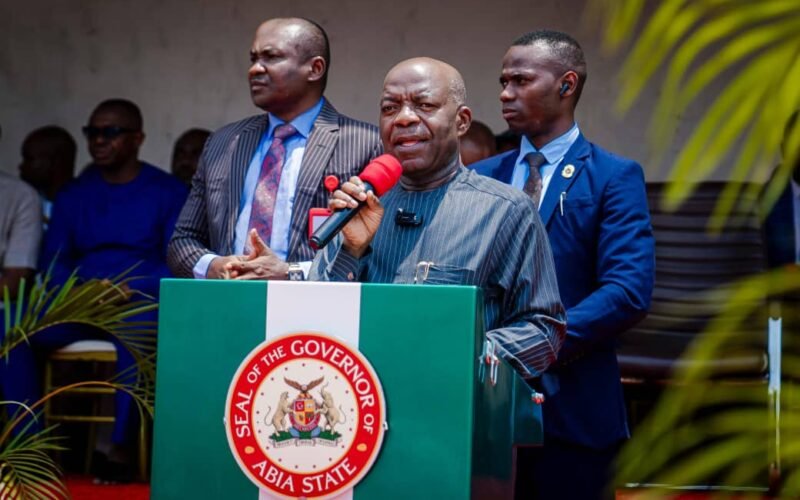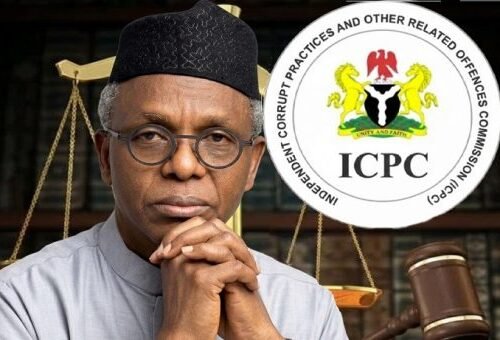Legal Analysis of Governor Otti’s Activities: A Week of Fiduciary Vigilance and Public Trust
Governor Alex Otti’s recent undertakings exemplify the legal doctrine of parens patriae—the state’s duty to act as a protector of its citizens’ welfare. His unscheduled visit to Abia State University (ABSU) constituted an exercise of due diligence under administrative law, exposing systemic neglect and triggering mandamus directives to compel infrastructural remediation. By ordering the demolition of unsafe structures and mandating habitable hostels within three months, Otti invoked quasi-judicial authority, prioritizing student safety under the public trust doctrine. Similarly, his approval of decade-withheld staff promotions at Dr. Ogbonnaya Onu Polytechnic rectified ultra vires injustices, aligning with labor law principles of equity and non-discrimination. The Governor’s partnership with AgroTop Israel to revitalize Ogwe Golden Chicken reflects fiduciary responsibility in economic stewardship, leveraging public-private partnerships (PPP lex loci) to resuscitate moribund assets. Otti’s actions collectively embody substantive due process—state intervention to secure fundamental rights to education, dignity, and economic participation.

Eulogy to Abia State and Governor Otti: A Symphony of Renewal
Abia State, under Governor Alex Otti’s visionary leadership, has become a jurisprudential blueprint for transformative governance. With N122 billion allocated to education in 2025—a historic 20% of the budget—the state has transitioned from infrastructural dilapidation to a renaissance of hope. Otti’s surprise audit of ABSU, where 83% of facilities were deemed unfit, catalyzed an emergency intervention: 5,000-capacity hostels, a functional cafeteria, and relocated faculties, all slated for completion within four months. This urgency mirrors his resolve in healthcare, where 17 retrofitted primary health centers now serve 300,000 rural dwellers monthly, reversing decades of res ipsa loquitur neglect.
Economically, Abia’s revival is quantified: the 8.11km Orpet-Umuafai-Lodu-Ahiaeke road project will connect 15 agrarian communities, boosting GDP contribution from agriculture by an estimated 40%. The Governor’s abolition of “notional promotions” liberated 1,200 polytechnic staff from a decade of career stagnation, while his N54 billion debt write-off in 2024 freed fiscal resources for human capital investments. Even in sports, Abia’s Under-15 handball teams—newly qualified for Spain’s international tournament—epitomize Otti’s ethos: excellence through equity.

Otti’s governance is a tapestry of legal rigor and moral clarity. By channeling 33 months of salary arrears into prompt payments, enforcing anti-tout ordinances, and launching Nigeria’s first solar-powered mass transit system, he has redefined bona fide leadership. The World Bank’s endorsement of Abia’s HOPE program—prioritizing health, education, and governance—validates this metamorphosis. In Otti’s Abia, justice is not obiter dictum; it is the precedent.
Poem: Lex Abiensis (The Law of Abia)
In chambers of neglect, where rusted statutes sighed,
Otti’s mandamus pierced the shadows, “Let there be light!”
Parens patriae, his gavel struck the night:
Hostels rebuilt, cafeterias vowed—students’ rights edict.
Eminent domain reclaimed the roads’ lost breath,
As concrete veins now pulse where potholes met their death.
Ultra vires chains, ten years’ promotions’ theft,
Unshackled by decree—careers no longer bereft.
Quasi-judicial winds sweep farms to golden flocks,
PPP lex loci revives the Phoenix from the rocks.
In courtrooms of progress, where equity presides,
Abia’s verdict reads: “Hope, here, now resides.”
Epilogue: The Jurisprudence of Hope
Governor Otti’s week was a masterclass in legal statesmanship—a fusion of urgency, equity, and enforceable accountability. From ABSU’s crumbling walls to Ogwe’s poultry renaissance, his actions are stare decisis for future leaders: governance is not mere policy, but a binding covenant with the people. As Abia’s streets now hum with bulldozers and prayers alike, Otti’s legacy is etched in statute and spirit: Fiat justitia, ruat caelum—“Let justice be done, though the heavens fall.”

Dr Chukwuemeka Ifegwu Eke writes from Yakubu Gowon University Nigeria







